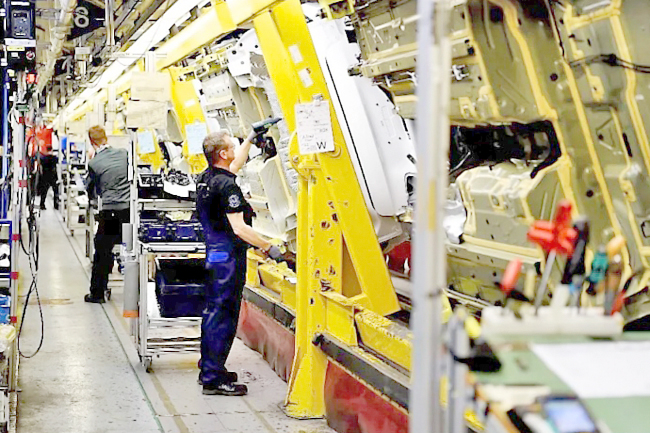FRANKFURT (AFP) – German industrial orders rebounded in November after a sharp drop in October, official data showed yesterday, despite persistent shortages in raw materials and components weighing on the sector.
The indicator, which gives a foretaste of industrial production, climbed by 3.7 per cent in November over the previous month, having fallen by 5.8 per cent in October, according to revised figures from the federal statistics agency Destatis.
The figures were a “positive impulse for the economic outlook”, the Economy Ministry said in a statement, while noting that “economic activity continues to be hampered by supply bottlenecks”.
The country’s flagship auto industry, which was plagued by shortages of key components throughout 2021, saw orders increase by seven per cent in November, having experienced a 4.7 per cent fall the month before.
Whether those orders could be filled promptly will depend on whether supply chain issues subside in the new year.

The lack of semiconductors, a key part for both conventional and electric vehicles, pushed car sales in Germany to their lowest level since reunification in 1990, after a sharp drop in 2020 due to the coronavirus pandemic.
Producers of other transportation modes, such as planes and boats, saw incoming orders grow by 32 per cent on October pushed by a raft of major orders.
International demand, which suffered particularly in October, increased by eight per cent over the previous month.
Order growth from inside the eurozone was particularly strong, up 13.1 per cent, while those from other countries rose five per cent.
Domestic orders meanwhile slipped 2.5 per cent on the previous month, as the government imposed new health restrictions to tackle increasing numbers of coronavirus cases.


